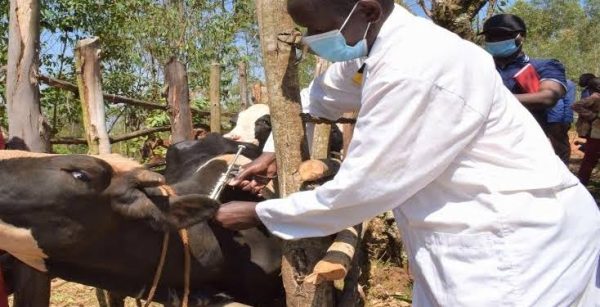What to know about anthrax as Nigeria records first case of killer disease

Anthrax
On Monday, Nigeria recorded its first case of anthrax. In a statement, the federal ministry of agriculture and rural development announced that the disease was recorded in some farm animals in Niger state.
What is anthrax? CrispNG takes a look at the cause of the disease, transmission, symptoms, and treatment.
Anthrax is a serious infectious disease caused by the spore-forming bacterium Bacillus anthracis. Here are some key points to know about anthrax:
1. Transmission: Anthrax can be transmitted to humans through contact with infected animals or their products, such as hides, hair, or meat. It can also occur through inhalation of anthrax spores or through skin contact with contaminated soil.
2. Three Forms: Anthrax can occur in three main forms: cutaneous anthrax (through skin contact), inhalational anthrax (through inhalation of spores), and gastrointestinal anthrax (through consumption of contaminated meat).
3. Symptoms: The symptoms of anthrax depend on the form of the disease. Cutaneous anthrax typically starts with an itchy bump that develops into a painless ulcer with a black center. Inhalational anthrax initially resembles a common cold but progresses to severe respiratory distress. Gastrointestinal anthrax presents with nausea, vomiting, abdominal pain, and bloody diarrhea.
4. Diagnosis: A diagnosis of anthrax is typically made by isolating and identifying the bacterium from a sample taken from the affected area or body fluids. Blood tests and imaging studies may also be used to aid in the diagnosis.
5. Treatment: Early treatment is crucial in anthrax cases. Antibiotics, such as ciprofloxacin, doxycycline, or penicillin, are used to treat anthrax. In severe cases, additional measures like intravenous antibiotics and supportive care may be required.
6. Prevention: Vaccination is an effective preventive measure for anthrax. It is recommended for individuals at high risk, such as laboratory workers, veterinarians, and military personnel. Additionally, practicing good hygiene, avoiding contact with infected animals, and taking precautions when handling potentially contaminated animal products are important preventive measures.
7. Biological Weapon: Anthrax has been used as a biological weapon in the past due to its ability to form spores that can be dispersed over a wide area. This has led to concerns about its potential use in bioterrorism attacks.
8. Public Health Response: In the event of a suspected anthrax outbreak, public health authorities would respond by conducting investigations, implementing appropriate infection control measures, providing prophylactic treatment to exposed individuals, and conducting surveillance to monitor the spread of the disease.
It’s important to note that while anthrax is a serious disease, it is relatively rare, and appropriate precautions and prompt treatment can greatly reduce the risk of complications. If you suspect you may have been exposed to anthrax or are experiencing symptoms, it is important to seek medical attention immediately.

